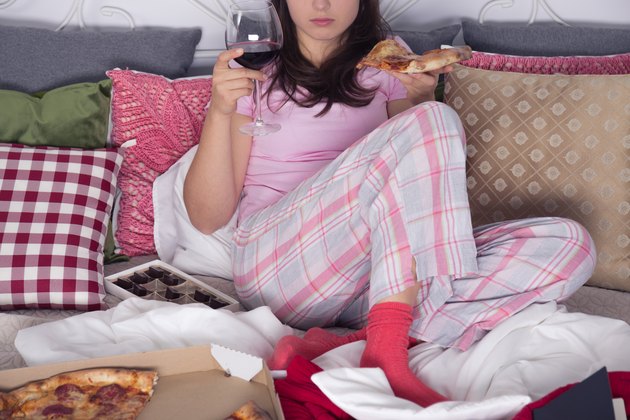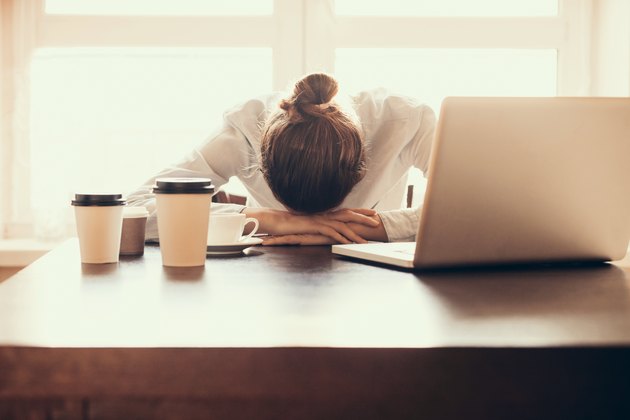We’ve all been there: eating like a totally normal, reasonable person in the daytime, then derailing your diet by ordering pizza at 10 p.m.

Advertisements
Well it turns out there is a reason you behave this way: New research confirms you have a finite amount of self-control that slowly depletes throughout the day, explaining pretty much everything, right?
Texas A&M scientists conducted two experiments to test whether using a lot of self-control during one task left participants with less of it to use during a second task. In the first experiment, 657 undergraduates were asked to complete a writing task. Some were asked to simply write about a recent trip, while others had to write about a trip without using the letters A and N.
Then the students took the Stroop test, which requires you to either name the color of a color-denoting word (for example, if you saw the word “blue” written in yellow ink, the answer would be yellow) or name the color of an emotional or neutral word. Our heads hurt just thinking about it.
According to the study, ignoring the meaning of the words and focusing on the color itself takes self-control.
Advertisements
The result was that the students who completed the harder writing task finished just as fast as the students who had it easy, but made more mistakes on the Stroop test afterward.
The researchers believe that this is the “strongest evidence yet” that our self-control gets weaker every time we exercise it. (No offense to the scientists, but we could have told you that.)
Though they’re not entirely sure why we slowly lose our willpower throughout the day, they suggest that it could be either one reason or a combination of a few reasons. Maybe we really do experience a drop in resources, or we might be subconsciously conserving our resources later in the day. Another possibility is that we shift from “have-to goals” toward “want-to goals” as the day goes on. In other words, our desires become more important than our willpower.
It’s nice to know that it’s not totally our fault that our evenings tend to be jam-packed with some of our less-than-healthy indulgences. Knowing this information could help you to be more cognizant of your drop in willpower so you can get your tougher tasks done in the morning and fight your urges even harder in the evening.
Or your takeaway might be to cut yourself a little slack and take extra care in the evenings — whether that’s by slapping on a face mask, reading a guilty-pleasure book or just drinking that darn glass of (antioxidant-rich) wine already.
What Do YOU Think?
Are these findings consistent with your daily habits? What’s one thing that’s the hardest for you to resist in the evening? Do you plan your day around your energy levels, or do you just kind of wing it?





Comments